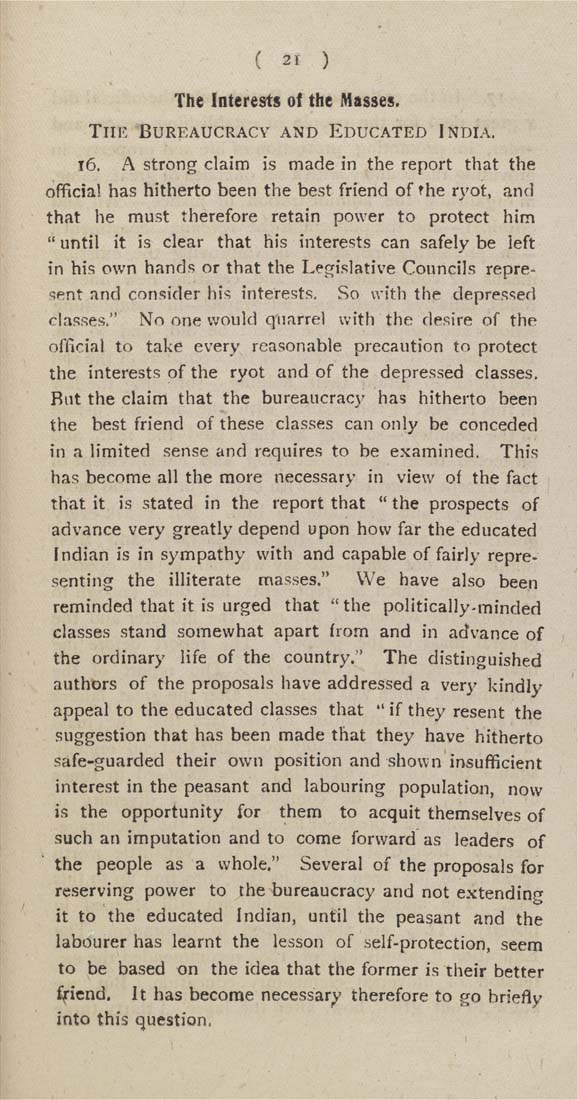Malaviya, Madan Mohan, A criticism of Montagu-Chelmsford proposals of Indian constitutional reform
(Allahabad : Printed by C.Y. Chintamani, [1918])
|
||
|
|
|
|
| Page 21 |

( 21 ) The Interests of the Masses. The Bureaucracy and Educated India. l6. A strong claim is made in the report that the official has hitherto been the best friend of the ryot, and that he must therefore retain power to protect him " until it is clear that his interests can safely be left in his ov/n hands or that the Legislative Councils repre¬ sent and consider his interests. So with the depressed classes." No one v/ould quarrel with the desire of the official to take every reasonable precaution to protect the interests of the ryot and of the depressed classes. But the claim that the bureaucracy has hitherto been the best friend of these classes can only be conceded in a limited sense and requires to be examined. This has become all the more necessary in view of the fact that it is stated in the report that " the prospects of advance very greatly depend upon how far the educated Indian is in sympathy with and capable of fairly repre- senting the illiterate masses." We have also been reminded that it is urged that " the politically-minded classes stand somewhat apart from and in advance of the ordinary life of the country.' The distinguished authors of the proposals have addressed a ver}' kindly- appeal to the educated classes that " if they resent the suggestion that has been made that they have hitherto safe-guarded their own position and shown insufficient interest in the peasant and labouring population, now is the opportunity for them to acquit themselves of such an imputation and to come forward as leaders of the people as a whole." Several of the proposals for reserving power to the bureaucracy and not extendinf^ it to the educated Indian, until the peasant and the labourer has learnt the lesson of self-protection, seem to be based on the idea that the former is their better ificnd. It has become necessary therefore to go briefly into this question. |
| Page 21 |







